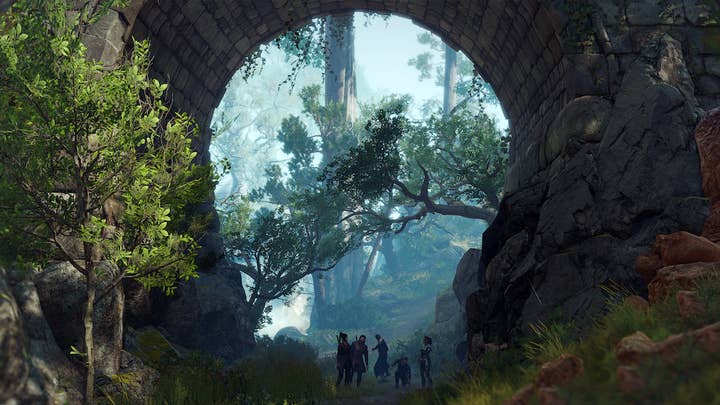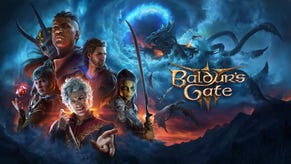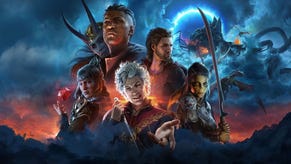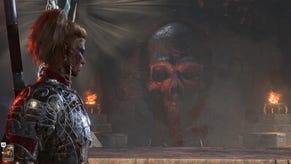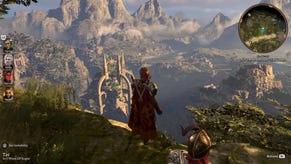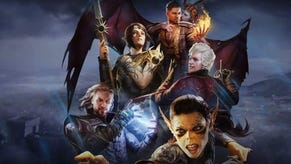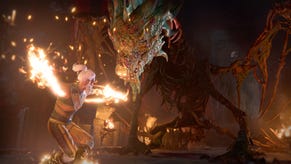Larian plays dungeon master for a new era of Baldur's Gate
CEO Swen Vincke talks Larian's growth, recreating the accessibility of D&D with Baldur's Gate 3, and finding the right balance when working on an iconic IP
In December 1997, LED Wars came out. If you're unfamiliar with the game, a Google search will tell you that it's an "above-average real-time strategy game" that plays like a "low-cost alternative to [EA] Westwood's famous Command & Conquer series."
Exactly one year later, Baldur's Gate came out. To this day, it is still considered the cream of the crop within its genre. Based on a pen-and-paper Dungeons & Dragons campaign run by BioWare's James Ohlen, Baldur's Gate is still fondly remembered for its engaging but realistically flawed cast, its political plot, and its groundbreaking pausable real-time combat.
Baldur's Gate also had technical prowess, balancing hundreds of thousands of assets when most games at the time only had a couple of thousand. Bioware released an equally well-received sequel in 2000, Baldur's Gate 2.
So what do an above-average real-time strategy game and what's arguably the best CRPG of all time have in common? Well, the developer of the former is working on the anticipated follow up to the latter. That would be Larian Studios, of course, and needless to say the Belgian developer has come a long way since LED Wars.
"Baldur's Gate 3 is 1.5 million words, estimated, of performance capture. It's been quite a job"
Swen Vincke, Larian
Larian embodies the expression 'it takes years to become an overnight success'. An educational games studio for a while, it has invested body and soul in its Divinity franchise, which launched in 2002. The sixth entry in the series, Divinity: Original Sin, nearly bankrupted the studio despite a successful Kickstarter campaign.
But even in the darkest time, Larian was smart enough to keep pushing for its vision and to pave the way for its future success -- a success that it was determined to build completely independently. And this road to independence actually started with the engine it's using.
"We've been working on the Divinity Engine since 2011," Larian CEO Swen Vincke says. "It's ever evolving and it's dedicated to making RPGs and multiplayer. The big thing for the [latest version of the engine] is the ability to do work cinematically. That turned out to be a much bigger challenge than we thought it was going to be. We have two studios in London that are continuously motion capturing, because everything in Baldur's Gate 3 is performance capture. So it's 1.5 million words, estimated, of performance capture. It's been quite a job."
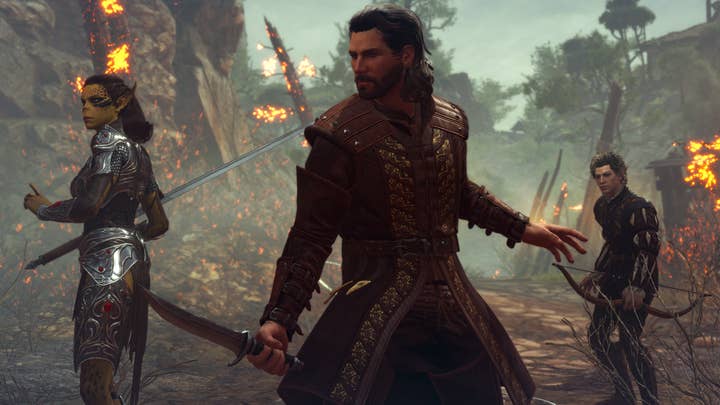
After a decade of refinement, the Divinity Engine is now tailored to Larian's needs, powering the cinematic experience that Baldur's Gate 3 is shaping up to be. The studio simply wouldn't have been able to realise its ambition without a decade of working on its own tech.
And Larian's dream of working on Baldur's Gate 3 has also been almost a decade in the making. When I ask Vincke how he managed to get the very sought after IP, he bursts out laughing and replies: "I rolled a D20 and I won."
One thing that's abundantly clear when meeting Vincke and the Larian team is the sheer passion they all seem to share for this universe. There's a pure, almost childish joy in Vincke as he explains how Larian pulled this one off.
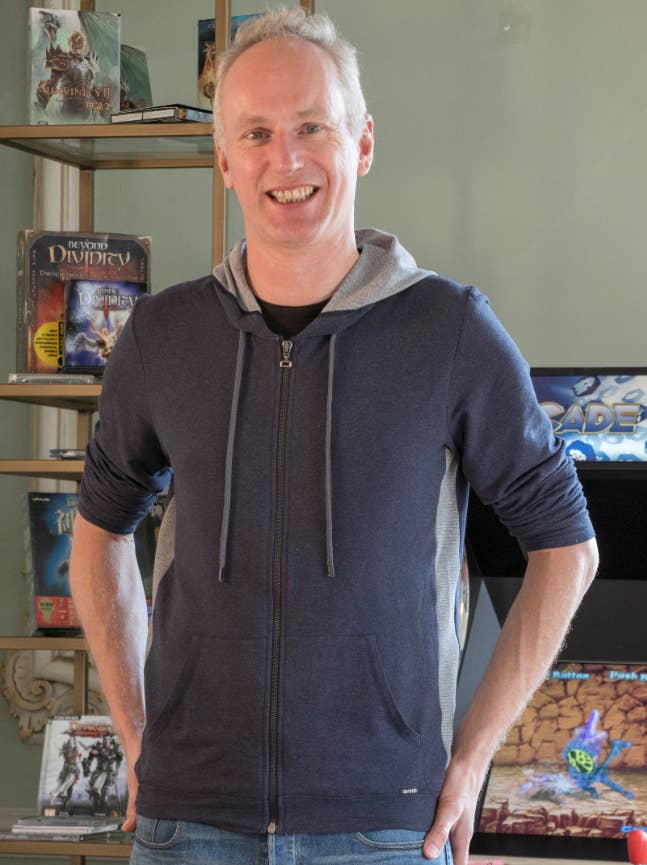
"I approached [Wizards of the Coast] for the very first time after Original Sin, trying to explain to them that we should be the ones making Baldur's Gate 3," he says. "They didn't really react, but then we started talking with each other and so they asked me: 'What would you make?' and then I explained what you saw today.
"That hit a nerve clearly, because many years later I got a phone call from Nathan Stewart, the head of Dungeons & Dragons, and he said: 'Do you want to come over to Seattle, I have something to show you'. And so he showed me a Power Point, which was exactly what we had been talking about -- I still have it actually! And he said: I'm gonna show this to the board of Hasbro next week, do you still want to do it?"
Vincke shakes his head enthusiastically. Of course Larian wanted to do it, but one does not simply make a Baldur's Gate game. The franchise comes with two decades of lore and, to widen the scope even more, D&D is a 46 year old IP that's now so trendy even Vin Diesel and Dwayne 'The Rock' Johnson play it.
"In terms of pressure... There's quite a lot, so we try not to think about it," Vincke says.
"[Wizards] is very supportive. The first thing they did is they sent us a shitload of books and miniatures, and [we have] access to all of the geeky stuff that they have. When we started, we brainstormed together with the creative team about what the story was going to be. Very early on the idea of making the mind flayer central was there, based on a picture in [D&D manual] Volo's Guide to Monsters, and then I pitched the idea to them. They said: 'Shit, yeah, do that'."

While Wizards works closely with Larian on its use of iconic D&D characters, the studio otherwise has a lot of freedom. And the partnership is not one-sided, with Wizards making its latest campaign, Baldur's Gate: Descent into Avernus, specifically to support Larian.
"We've been doing this for a long time, so we trust each other," Vincke says. "We respect clearly what they've been making, they respect the fact that we have to make a video game, that we need to modify certain things, that it otherwise doesn't work. So we're getting a lot of liberty.
"Larian is the dungeon master, there are some house rules, this is how we play, and that's it. I mean that's pretty much also what D&D does, right? [Its rules] just support you. They give you a framework to play with, but you play your way. [Wizards] don't want to say: 'No, it's exactly like that!'. That's not their jam."
Developing a new Baldur's Gate title is all about finding a balance between the franchise's historic gameplay, which was based on the second edition of the D&D ruleset, and modernising it for the current ruleset. An example of one of the many decisions Larian had to make was the combat system -- the studio ended up choosing turn-based combat over Baldur's Gate's pausable real-time combat.
"We're not remaking BG2," Vincke says. "We're 100 years later. Wizards is now in fifth edition, so the Forgotten Realms have changed heavily. There's been a lot of lore that has been rewritten, actually. D&D is a turn-based system and so we thought it was better to just stay true to the core because that means that we can port more of the system almost one-on-one."
At the core of what Larian is trying to achieve with Baldur's Gate 3 is one simple concept that's also fundamental to D&D: accessibility. This was already the studio's vision for Divinity: Original Sin 2, and Vincke expects it to carry over to Baldur's Gate 3 -- and to potential future Divinity games too.
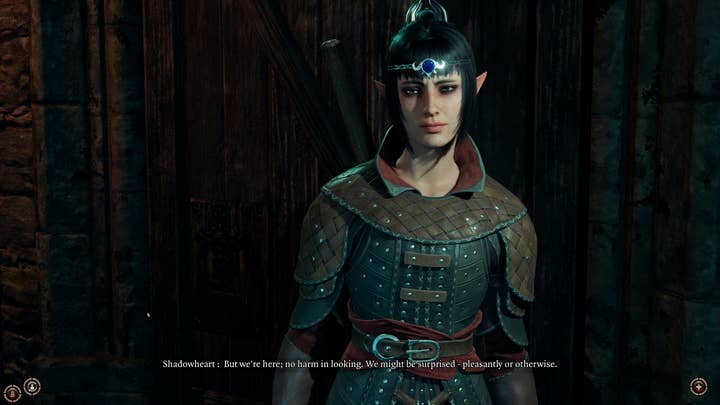
"The Divinity IP is still alive, but obviously right now our mental bandwidth is pretty consumed by [Baldur's Gate 3]," Vincke says. "It's the Divinity Engine 4.0 that you're seeing in action, so we're building a very powerful engine capable of doing full cinematics in multiplayer, with incredible complex rulesets, and being able to hand it to you in a very accessible manner. So that's not going to go to waste.
"I have a friend who has two [seven years old] kids, and I was surprised to see [them] playing Original Sin 2 in split-screen on their PS4. So that's how accessible it is already."
D&D is not a complicated game at its core. I was very young when I witnessed my first D&D sessions -- I didn't necessarily understand the rules, but I would roll the dice from time to time and just listen to the stories. I was a pre-teen when Baldur's Gate came out, and while I didn't understand its intricacies, that didn't prevent me from enjoying every single second of it. D&D is the ultimate 'easy to understand, difficult to master' game.
"I used to play D&D in the car with my kids. That's how accessible it is. It's a very powerful concept, you can play it anywhere"
Swen Vincke, Larian
"You have an action and you can choose what you're going to do and it's turn-based," Vincke says. "You can spend as much time as you want and then the game tells you: this doesn't work or it works and then everything is finished. And now it's even cinematic, so this is pretty accessible.
"When you start scratching deeper you discover more things and that's the key part. But I used to play D&D in the car with my kids. I just told them: 'Well this is a long drive, so this is what happens, what do you do?' Then I'd roll a D20 in my head, and they completely would be into it. That's how accessible it is. It's a very powerful concept, you can play it anywhere."
If it can pull off that accessibility, Larian has the potential to take a lion's share of the D&D audience, as it's arguably at its popularity peak at the moment. The Stadia launch feeds into that idea of accessibility as well, with Vincke saying that the fact that you can send a Stadia link to a friend so they can enter the game instantly was the appeal.
And the studio certainly is throwing itself into what looks to be a monumental development effort. Larian is now a 350-person company if you include the outsourcers -- 250 without -- spread across multiple locations.
"We have this 24-hour operation that we're trying to set up," Vincke says. "We have a studio in Malaysia now. They just started, but we have our first ten people there. We have one in St Petersburg, in Dublin, in Quebec, and in Ghent, where we started, in Belgium."
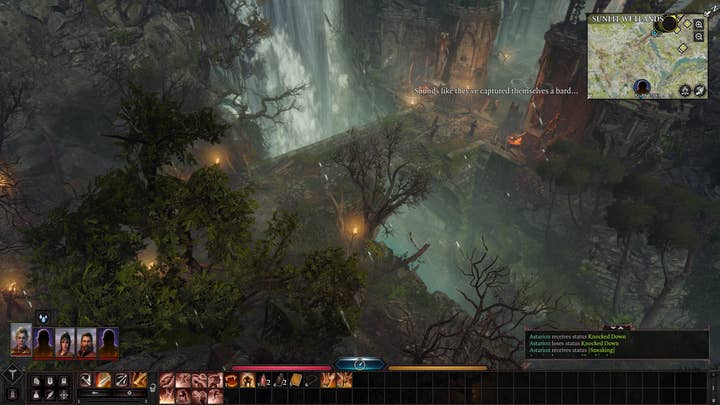
When asked about the reality of working with multiple teams across multiple countries, Vincke admits it's complicated.
"It's got advantages and disadvantages," he says. "The disadvantage is that you're not in the same room, the advantages are that you have different time zones, different cultures, different recruiting pools that you can use. So in moments when there's a lot of pressure, it's really handy to be able to say: 'I'm going home. Quebec, can you look at it?' and then to be able to pass the torch.
"We started by experimenting with this with Original Sin 2. We wouldn't have made Original Sin 2 in two years if we hadn't been able to do that. These RPGs take an incredible amount of effort to build because they're so complicated, they have so many moving pieces. So being able to say: okay, I'm handing it off to another team -- that works. What we did is we cloned the teams. So that we basically have all roles in every single team. That's the vision behind it. I don't know if it works at scale, but right now it works."
"We have this 24-hour operation that we're trying to set up. I don't know if it works at scale, but right now it works"
Swen Vincke, Larian
But even having grown so much, it doesn't solve all the development challenges that Baldur's Gate 3 brings to Larian -- localisation being one of them.
"We actually are already translating in multiple languages -- we're not announcing them yet," Vincke says. "The elephant in the room here is the voice and the performance capture. We don't know how to do that. The thing is, if we were to do it, we would probably have to add an extra year of development just to be able to support it, and so that's a hard one. So since this is our brand new cinematic pipeline, and this is a very first time we do this kind of stunts, I don't think we're gonna add that extra burden on top of it. But maybe for the future, we'll see. It's a very complicated one, if only because of the performance capture."
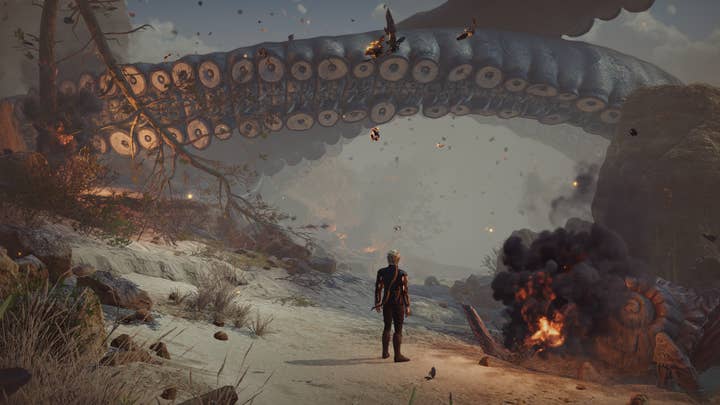
Larian has 24 years of experience under its belt, and while one may think that this could be enough to avoid difficulties while developing Baldur's Gate 3, this is simply not how development works.
"I think we're going to make all the same mistakes," Vincke says. "We have a team of people that really like what they're doing. People who like what they're doing always want to push further. I'm the same. I like to push further. And because we're pushing further, we constantly are discovering things that we didn't know before, which brings us into trouble, which we then have to solve.
"So it's always the same story. But it's good, because we could never make the same thing twice. Scale obviously comes with its own problems, so we're discovering those, and we're dealing with them in our own way, which is not necessarily the same as everybody else. We'll see if it works, but I don't think any game is ever the same.
"We're a strange company -- it's really about the game. We didn't plan on growing to 350, or 250 internally, but Baldur's Gate told us to. And it's actually telling us to grow even more to support everything that we want to do. So our hope and aspirations is that there's a market for it. We think there is -- we've seen with Original Sin 2 how big the market is -- so we think that for BG3 the market is probably bigger, with the support of Wizards and Dungeons & Dragons. And if we screw it up, I think it's for a good reason."
As we conclude our chat Vincke says that, to a lot of people, the most memorable D&D moments are the ones that are the most unexpected. When you roll a natural 20 (or a natural one...) and you wait, full of excitement (or terror...), to find out what happens -- what the DM comes up with. This is exactly what waiting for Baldur's Gate 3 feels like -- and it very much feels like Larian is rolling with advantage.
